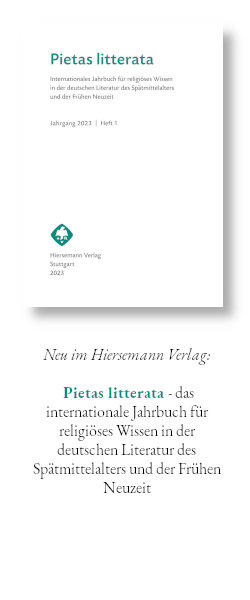Animæ militum: Concerning the Literary Reception of a Version of the «Troop of the Dead», ascribed to Ekkehard von Aura
DOI:
https://doi.org/10.36191/mjb/2020-55-1-3Schlagworte:
Frutolf von Michelsberg, Bamberg, Ekkehard von Aura, Emicho, Johannes Trithemius, Ludwig Lavater, ‹Chronicon universale›, Chronicon universale ab Orbe Condito usque ad annum 1125, the 1125 Continuation of Frutolf, Salian dynasty, early modern history, Benedictine historiography, literary reception, Purgatory, ghost stories, military ethics, Wild Hunt, Troop of the DeadAbstract
Ekkehardus Uraugiensis, a Benedictine abbot and historian who is popularly known as Ekkehard von Aura (ca. 1085 – ca. 1130), was thought to have contributed to the foundational chronicle for the Salian period, known in scholarship as the Chronicon universale. In the annal for the year 1123, a short account of a miraculous encounter appears, introduced by the phrase In pago Wormaciensi videbatur. A Troop of the Dead visits the Worms region, slain soldiers who identify themselves as anime militum. For centuries, European authors have received and adapted this anecdote, which belongs to the legend complex of the Wild Hunt. Two streams of reception are identified and traced here, one indebted to the twelfth-century original, and the other to the dual versions of the early modern period by the polyhistor and prominent chronicler Trithemius.
Keywords: Frutolf von Michelsberg, Bamberg, Ekkehard von Aura, Emicho, Johannes Trithemius, Ludwig Lavater, ‹Chronicon universale›, Chronicon universale ab Orbe Condito usque ad annum 1125, the 1125 Continuation of Frutolf, Salian dynasty, early modern history, Benedictine historiography, literary reception, Purgatory, ghost stories, military ethics, Wild Hunt, Troop of the Dead


